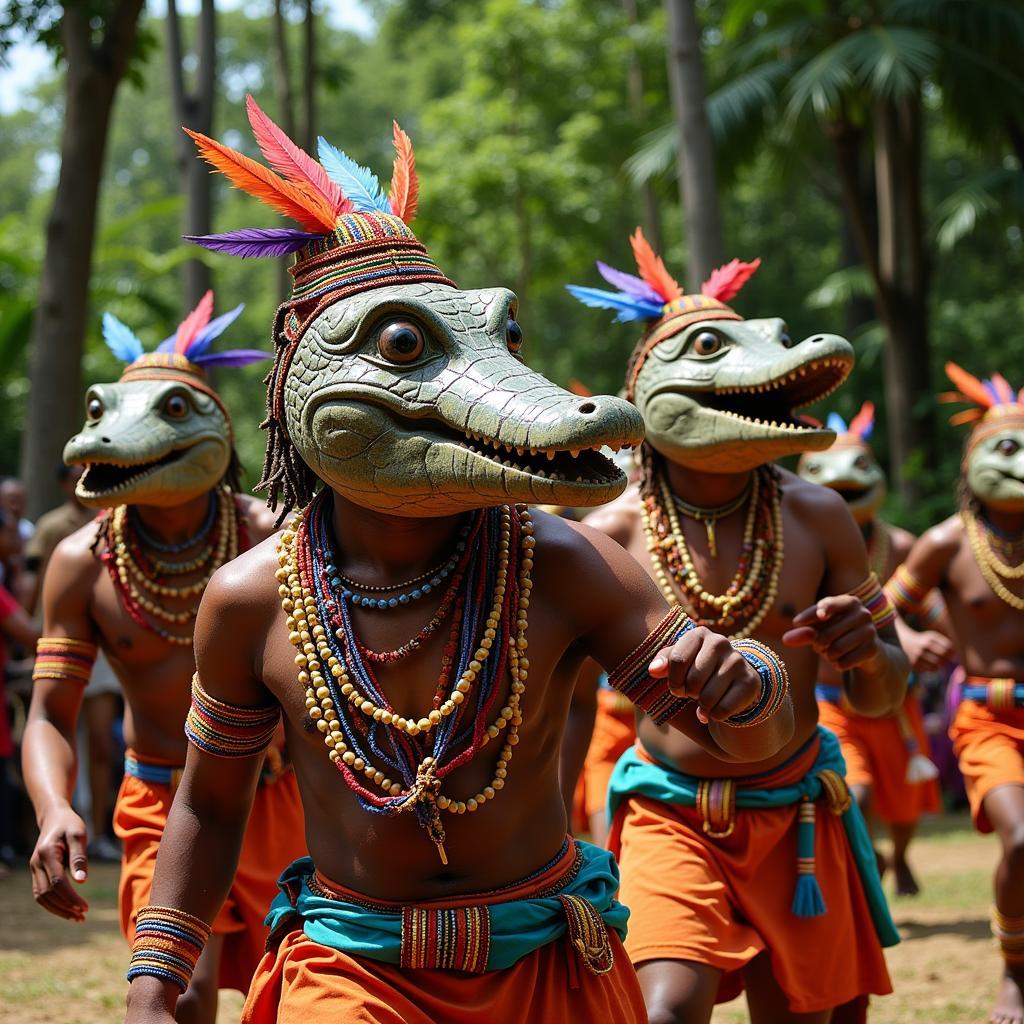Exploring the Diverse Sexual Practices and Customs in Africa
Africa is a continent of vast diversity, encompassing a wide range of cultures, languages, and traditions. This diversity is reflected in its sexual practices and customs, which vary greatly from one region to another. Exploring this aspect of African Life offers a glimpse into the rich tapestry of human sexuality and the diverse ways in which different communities approach intimacy and relationships.
The Importance of Context
It is crucial to approach this subject with sensitivity and respect for the cultural nuances and complexities that exist. Generalizations about African sexual practices are unhelpful and inaccurate, as they often fail to account for the vast array of cultural contexts and beliefs across the continent. It is important to remember that Africa is not a monolith, and each region has its unique history, traditions, and social norms that shape sexual behavior.
Diverse Sexual Practices and Customs
Let’s delve into some of the diverse sexual practices and customs found across different African communities:
1. Polygamy:
- Polygamy, the practice of having more than one spouse at a time, is prevalent in many parts of Africa, particularly in communities where traditional societal structures still hold sway.
- The reasons for polygamy vary, but often stem from cultural beliefs about family, fertility, and social status.
- Different types of polygamy exist, including polygyny (one man with multiple wives) and polyandry (one woman with multiple husbands).
- While legal in some African countries, polygamy is often viewed as a complex issue, with potential benefits and drawbacks.
2. Female Genital Mutilation (FGM):
- FGM refers to the partial or total removal of external female genitalia for non-medical reasons.
- This harmful practice is deeply rooted in cultural beliefs and traditions in some communities, but has no medical justification and causes severe physical and psychological harm.
- International organizations and activists are working tirelessly to end FGM, promoting awareness and supporting women and girls who have been subjected to it.
3. Ritual Practices:
- Some African cultures incorporate sexual rituals into their traditional ceremonies and practices, such as initiation rites or fertility rituals.
- These rituals often have symbolic meaning, and may involve specific sexual behaviors, such as dancing or communal sex, to mark a particular transition in life.
- It’s important to understand these practices within their specific cultural context and to avoid viewing them through a lens of judgment or misunderstanding.
4. Sexual Health and Education:
- Access to comprehensive sexual health education is a significant challenge in many African communities, particularly for young people.
- Traditional beliefs and social taboos can create barriers to open discussions about sexuality, which can lead to increased vulnerability to sexually transmitted infections and unintended pregnancies.
- Initiatives are underway to promote open and honest conversations about sexual health, empower young people, and address the stigma surrounding sexual matters.
5. Contemporary Influences:
- The impact of globalization and urbanization has brought about significant shifts in sexual norms and practices in many African communities.
- Western influences, including the media, have contributed to the adoption of new sexual behaviors, including the increased acceptance of same-sex relationships in some urban centers.
- These changes often raise complex societal questions about tradition and modernity, individual rights, and the evolving nature of sexuality.
Expert Perspective:
Dr. Amina Omar, a sociologist specializing in African sexualities, shares her insights: “The complexities of sexual practices and customs in Africa are often underestimated. It’s crucial to move beyond generalizations and engage with the diversity of experiences and perspectives across the continent. Understanding these nuances requires a critical approach that respects local contexts and recognizes the agency of individuals within their communities.”
Conclusion
Africa’s sexual practices and customs are a testament to the continent’s incredible diversity and the many ways in which people express intimacy and relationships. While generalizations are often unhelpful, it’s essential to recognize the importance of cultural context and to approach this topic with sensitivity and respect. By embracing a nuanced understanding, we can move towards a more informed and empathetic appreciation of the vast range of sexual experiences and traditions found throughout Africa.
FAQ:
- Are there any specific African sexual practices that are considered taboo in the West?
- Yes, many African sexual practices that are considered taboo in the West, such as polygyny, FGM, or ritual practices, can be complex and nuanced. It is crucial to approach these practices with sensitivity and respect for their cultural context.
- How has globalization impacted African sexual practices?
- Globalization has brought about significant changes in African sexual practices, leading to the adoption of new behaviors and attitudes. It is crucial to understand the interplay between traditional and modern influences in shaping sexual norms and practices across the continent.
- Is it appropriate to discuss African sexual practices in a public forum?
- It is important to be sensitive and respectful when discussing African sexual practices in any forum. Avoiding generalizations and focusing on specific cultural contexts is essential for promoting understanding and avoiding stereotypes.
Remember, this is just a starting point for understanding the vast and complex world of sexual practices and customs in Africa. Further research and exploration are encouraged to gain a deeper appreciation for this fascinating aspect of human culture.

